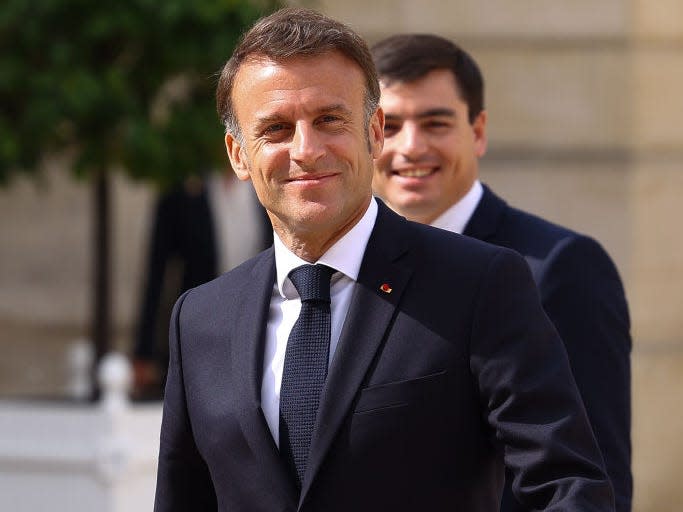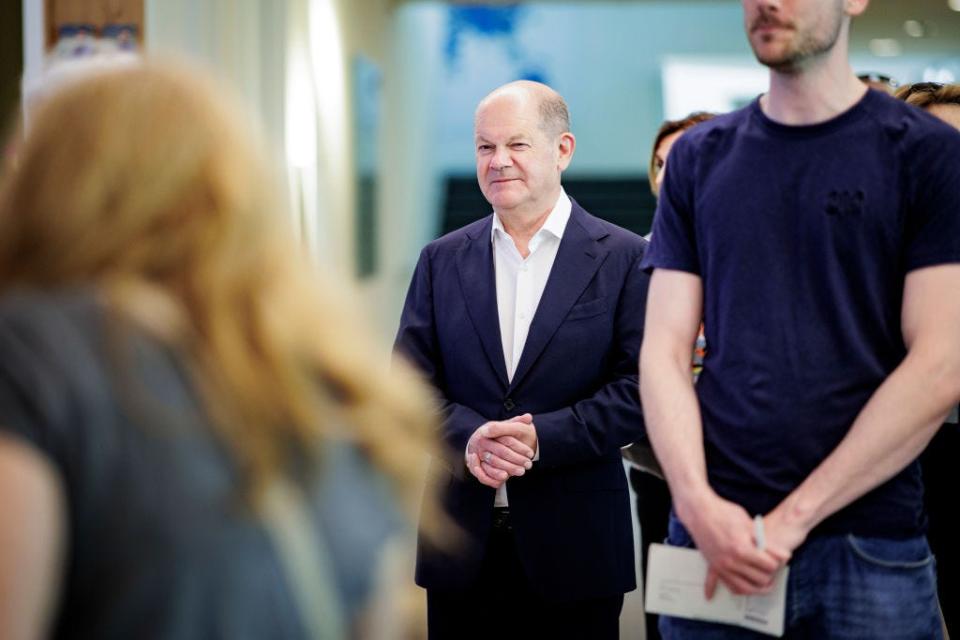European leaders are scrambling after a surge in support for the far-right
Far-right parties were victorious in the European Parliament elections.
Leaders in France and Germany are scrambling.
Belgium's PM resigned after the national election coincided with European election losses.
Leaders across Europe are scrambling after the European Union's parliamentary elections showed a surge in support for far-right and nationalist parties.
The EU elections, held in 27 countries from June 6 to 9, showed especially strong support for anti-immigrant, nationalist figures in France and Germany.
France and Germany are two of the continent's largest powers and are often regarded as drivers behind the experiment of pooled sovereignty, The New York Times reported.
Meanwhile, in Italy, Prime Minister Giorgia Meloni and her hard-Right Brothers of Italy party took 29% of the vote for the EU assembly
The results could mean that it will be harder for the European Parliament to make decisions, noted the Associated Press.
It said that European party officials met throughout Monday to discuss what alliances might be formed in the parliament for the next five years.
EU presidents and prime ministers are set to hold a meeting on June 17 about the results.

A snap election in France
French President Emmanuel Macron on Sunday announced he would dissolve France's National Assembly (the lower house of the French Parliament) after the country's far-right party, the National Rally, led by the French lawyer Marine Le Pen, handily defeated the ruling coalition.
Macron's centrist alliance had a 14.6% vote compared to the far-right National Rally's 31.4% vote.
The dissolution of the assembly is a high-stakes gamble, and it will mean new elections will be held in France between June 30 and July 7.
It could result in Macron's Renew Party losing additional seats to rivals in the anti-immigrant National Rally.
It could also significantly decrease Macron's influence over domestic policy. Alain Duhamel, a veteran political analyst, told the Financial Times that the election would likely result in a cohabitation government with a prime minister from an opposition party.
"This is a serious, weighty decision, but above all, it's an act of trust," Macron said of his decision, according to the Journal. "Confidence in you, confidence in the ability of the French people to make the right choice for themselves and for future generations."
Germany's future uncertain
Similarly, Germany's future is uncertain after its ruling coalition parties — the Social Democrats, Greens, and Free Democrats — faced defeat.
Support for the Greens decreased by almost half, while German chancellor Olaf Scholz's Social Democrats party recorded its worst result in a major election in more than a century, Politico reported.

According to the outlet, the center-right Christian Democrats gained a majority of the vote with 30.2%.
Alternative for Germany, or AfD — considered a "suspected" extremist group by German authorities — also surged in support. AfD overtook Germany's Social Democratic Party, which has been the leading party in the country since Scholz was elected chancellor in 2021.
Politco reported that AfD received 16% of the vote, up from around 11% in 2019, compared with a combined 30% for the three parties in Germany's governing coalition.
Belgium moves to the right
In Belgium, the European elections coincided with the country's national and regional elections.
According to another Politico report, the right-wing New Flemish Alliance and Francophone liberal Reformist Movement consistently won all three.
Prime Minister Alexander De Croo announced his resignation after his party, the center-right Open Flemish Liberals and Democrats, was unsuccessful across the board.
"For us, it's a particularly difficult evening. We lost. As of tomorrow, I will resign as prime minister," De Croo said in a speech on Sunday.
The AP noted that since the 2019 European Parliament elections, far-right politicians have led in Hungary, Italy, and Slovakia and are part of ruling coalitions in Sweden, Finland, and the Netherlands.
The Times reported that the parties had gained support in large part because of a focus on nationalism and identity tied to anti-immigration and anti-LGBTQ+ sentiment.
This year's elections seem to strengthen the right's power across the European Union and offer a rebuke to Europe's political establishment.
Should more far-right parties gain power, it would become harder for the parliament to pass laws across the EU, and this may impact negotiations between Ukraine and Russia. Much of the EU's far-right has a pro-Russia stance, pushing for a peace deal between the countries on Russia's terms, the Times reported.
Representatives for the European Parliament didn't immediately respond to a request for comment from Business Insider.
Read the original article on Business Insider


